Search Images
Browse Content (p. 1707)

Image
Mycenaean Octopus Brooch
A gold Mycenaean brooch in the form of an octopus, Mycenae, mid 2nd millenium BCE. (Archaeological Museum, Mycenae)
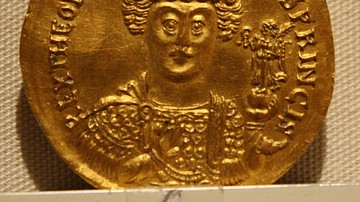
Image
Theodoric
Theodoric (known as Theodoric the Great and Flavius Theodoricus, 451 or 454 - 526 CE), the king of the Ostrogoths and Roman emperor 493-526 CE.
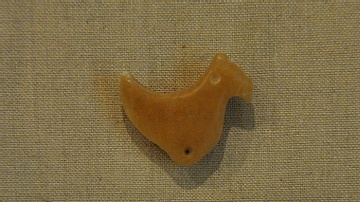
Image
Pendant
An alabaster pendant in the shape of a bird. From southern Mesopotamia, modern-day Iraq. Circa 3000 BCE. The Burrell Collection, Glasgow, Scotland. UK.
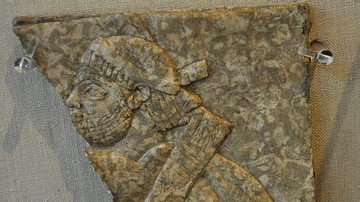
Image
Elamite Archer
A fragment of an alabster bas-relief which depicts an Elamite archer (in a war scene?). This is an enemy of Assyria. He is identified by his headband, hair style, and trimmed beard. The Elamites, in modern-day Western Iran, were conquered...
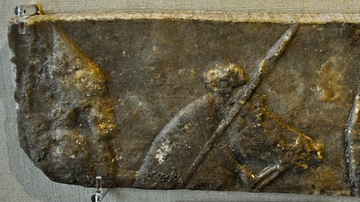
Image
Assyrian Cavalrymen
A fragment of an alabaster bas-relief which depicts Assyrian cavalrymen (in a war scene?). From Kuyunjik (modern-day Ninawa Governorate, Iraq). Neo-Assyrian period, reign of Ashurbanipal, 668-627 BCE. The Burrell Collection, Glasgow, Scotland...

Image
The Clachaig Skull
This skull was excavated from the cairn of Clachaig Falls on Arran in 1900 CE. With this skull, the skeletons of 14 men, women, and children were also discovered. The skull belonged to a young adult male; he was probably a farmer. Neolithic...
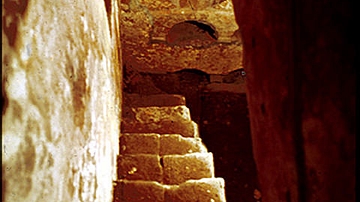
Image
The Columbarium at the Villa Wolkonsky, Rome
Before entering this columbarium, which is in the garden of the residence of the British Amabassador to Italy, I had to sign a waiver to the effect that I would not hold HM Government responsible for any mishap. And from the state of the...
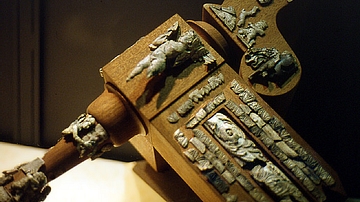
Image
Cremated Ivory Cupids from a Funeral Couch, Rome
After cremation, the incinerated bones were picked out and sorted from the charred wood of the fire and the couch on which the body had been laid. While the bones would be collected and placed into an urn, the remains of the wood and couch...

Image
Poseidon, Silver Tetradrachm of Macedon
Silver tetradrachm from Macedon, 306-283 BCE.
Obverse: Nike
Reverse: Poseidon
Alpha Bank Numismatics Museum, Kerkyra, Corfu.
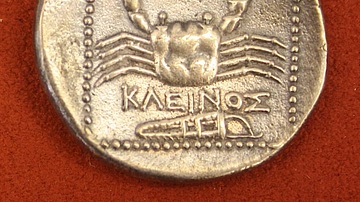
Image
Silver Tetradrachm, Kos
A silver tetradrachm from Kos, 300-190 BCE. O: Hercules, R: Crab. (Alpha Bank Numismatics Museum, Kerkyra, Corfu)